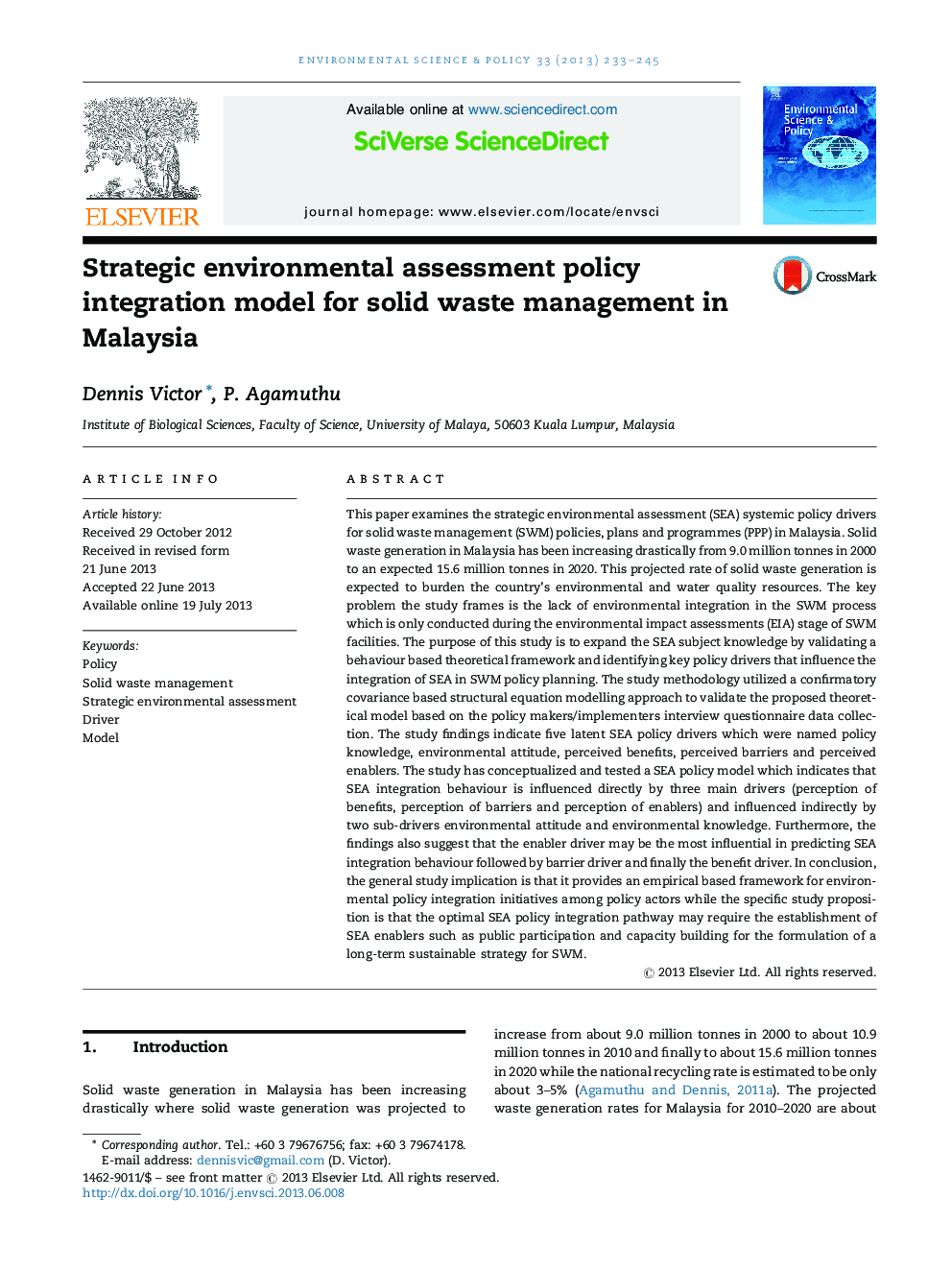| کد مقاله | کد نشریه | سال انتشار | مقاله انگلیسی | نسخه تمام متن |
|---|---|---|---|---|
| 1053657 | 1485073 | 2013 | 13 صفحه PDF | دانلود رایگان |
عنوان انگلیسی مقاله ISI
Strategic environmental assessment policy integration model for solid waste management in Malaysia
دانلود مقاله + سفارش ترجمه
دانلود مقاله ISI انگلیسی
رایگان برای ایرانیان
کلمات کلیدی
موضوعات مرتبط
مهندسی و علوم پایه
مهندسی انرژی
انرژی های تجدید پذیر، توسعه پایدار و محیط زیست
پیش نمایش صفحه اول مقاله

چکیده انگلیسی
This paper examines the strategic environmental assessment (SEA) systemic policy drivers for solid waste management (SWM) policies, plans and programmes (PPP) in Malaysia. Solid waste generation in Malaysia has been increasing drastically from 9.0 million tonnes in 2000 to an expected 15.6 million tonnes in 2020. This projected rate of solid waste generation is expected to burden the country's environmental and water quality resources. The key problem the study frames is the lack of environmental integration in the SWM process which is only conducted during the environmental impact assessments (EIA) stage of SWM facilities. The purpose of this study is to expand the SEA subject knowledge by validating a behaviour based theoretical framework and identifying key policy drivers that influence the integration of SEA in SWM policy planning. The study methodology utilized a confirmatory covariance based structural equation modelling approach to validate the proposed theoretical model based on the policy makers/implementers interview questionnaire data collection. The study findings indicate five latent SEA policy drivers which were named policy knowledge, environmental attitude, perceived benefits, perceived barriers and perceived enablers. The study has conceptualized and tested a SEA policy model which indicates that SEA integration behaviour is influenced directly by three main drivers (perception of benefits, perception of barriers and perception of enablers) and influenced indirectly by two sub-drivers environmental attitude and environmental knowledge. Furthermore, the findings also suggest that the enabler driver may be the most influential in predicting SEA integration behaviour followed by barrier driver and finally the benefit driver. In conclusion, the general study implication is that it provides an empirical based framework for environmental policy integration initiatives among policy actors while the specific study proposition is that the optimal SEA policy integration pathway may require the establishment of SEA enablers such as public participation and capacity building for the formulation of a long-term sustainable strategy for SWM.
ناشر
Database: Elsevier - ScienceDirect (ساینس دایرکت)
Journal: Environmental Science & Policy - Volume 33, November 2013, Pages 233-245
Journal: Environmental Science & Policy - Volume 33, November 2013, Pages 233-245
نویسندگان
Dennis Victor, P. Agamuthu,